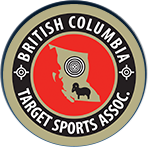In the coming weeks we will be posting some new resource material on the coaching pages, much of it is universal to all disciplines. Each week we will give you a preview of each item as it gets added to the Coaches Reference section. If you have topics you would like to see added, or if you are a writer with something to add, please let us know.
***************************************************************
Journaling - The importance of keeping a Performance Journal
Great change or great success is rooted in documenting your goals and your progress towards them. Progress can only be managed if you measure. A well-documented performance journal allows you to determine if your plan failed or you failed to work your plan. Winning is not an accident. You must plan your training and be accountable to that plan.
The journal also helps you to work with your coach. By referring to it you and your coach can review how often you are practicing, how long the practice lasts, what went on in the training session or competition. It is important to record what worked and what did not work and to understand what the objective of each session was and if it was accomplished.
With a Journal, your coach can help you to understand how environmental factors affected your training or performance in a competition. It is vital to know what equipment was used, when a change in equipment occurred and the reason for the change. Other factors like the weather and start time are all important.
The primary benefit of a performance journal is to build a positive Self-Image. Self-Image is built primarily by imprinting both real and rehearsed images into your mind. Every time we think about something it imprints and shapes our Self-Image. If you store positive mental images in writing they will have a huge impact on the Self-Image, more so than those that we simply talk about. By making a habit of writing down the positive we build our self image faster and in a more structured way. The reverse is also true so be careful, do not write about anything that you do not want to have happen again or you risk disaster.
The Difference Between a Journal and a Diary
A diary records your impressions, good and bad, of what happened today. In a Diary, you will record all your failures and just how you performed them. With a diary, the Principle of Reinforcement works against you. By documenting a failure, you have improved the chance of performing poorly again in the future.
A Performance Journal, by my definition, has no references to bad experiences or poor performances. It is a performance journal not a “lack of performance” journal. In both a Diary and Journal you do record statistics as they can be helpful. But if you record your mistakes you are making a huge mental error and the Self-Image suffers.
After every practice record the date, location, time started and total time spent, weather conditions, what you did (no negative here, just record what you practiced), what you did well, what you need to find solutions for and your goals for the future i.e. things to work on.
You should also have an equipment page that is constantly updated every time you change anything. You need a competition page to record your scores in competition and an easy way to relate them to the performance analysis pages. Keep your performance analysis journal where you can record this information immediately after a day of practice or competition. You can remember things only so long, so do your recording before you leave to head home.
Tying Your Training Plan and Journal Together
When you plan your training year tools like a self evaluation highlight areas on which you must focus. Your plan should reflect the skills you wish to acquire (good plans get into the details). Your journal helps you to monitor your progress developing those skill and make adjustments to your plan as the training year progresses. All high performance athletes treat their Journal and Training Plan as related documents. The plan sets the stage and the Journal directs changes and modifications.
After each training session you should document your progress, record positive outcomes and revaluate your goals. You should then use your journal to determine if your plan needs to be modified. This means that your journal guides modifications to your training plan. You should keep your coach in the loop by discussing your journal and training plan with them.

